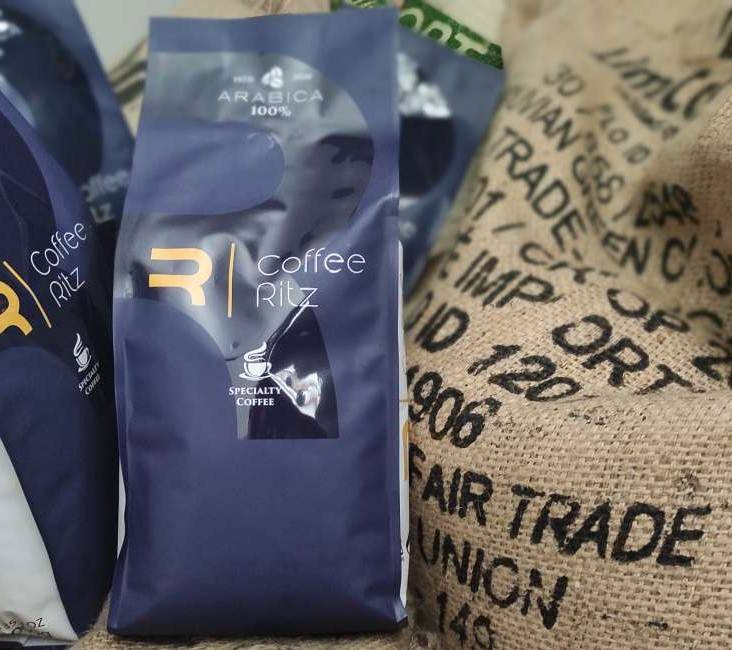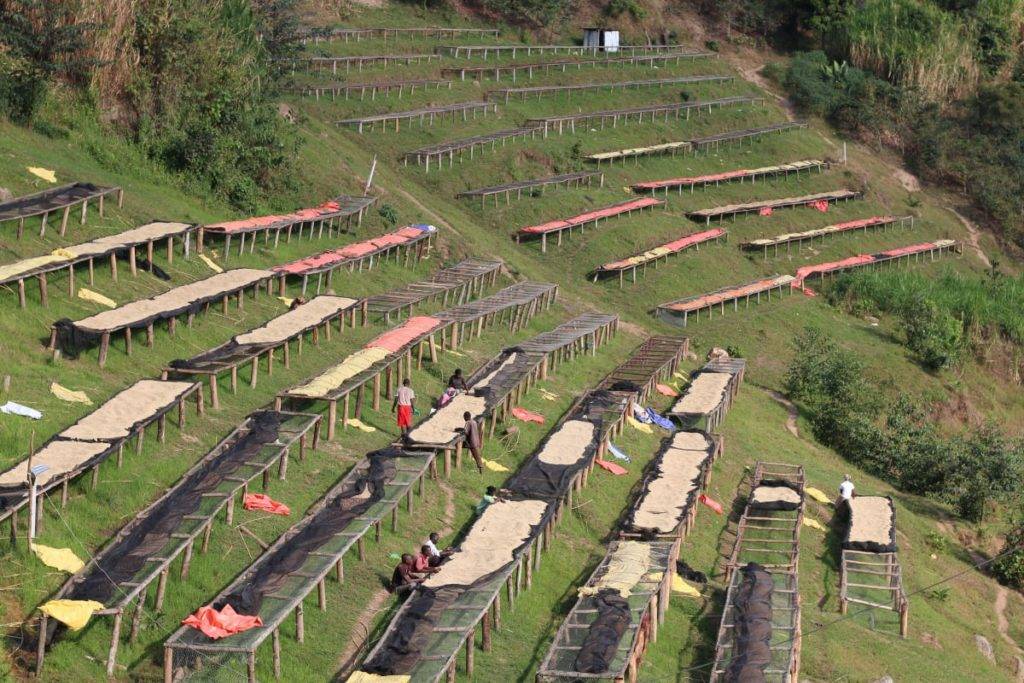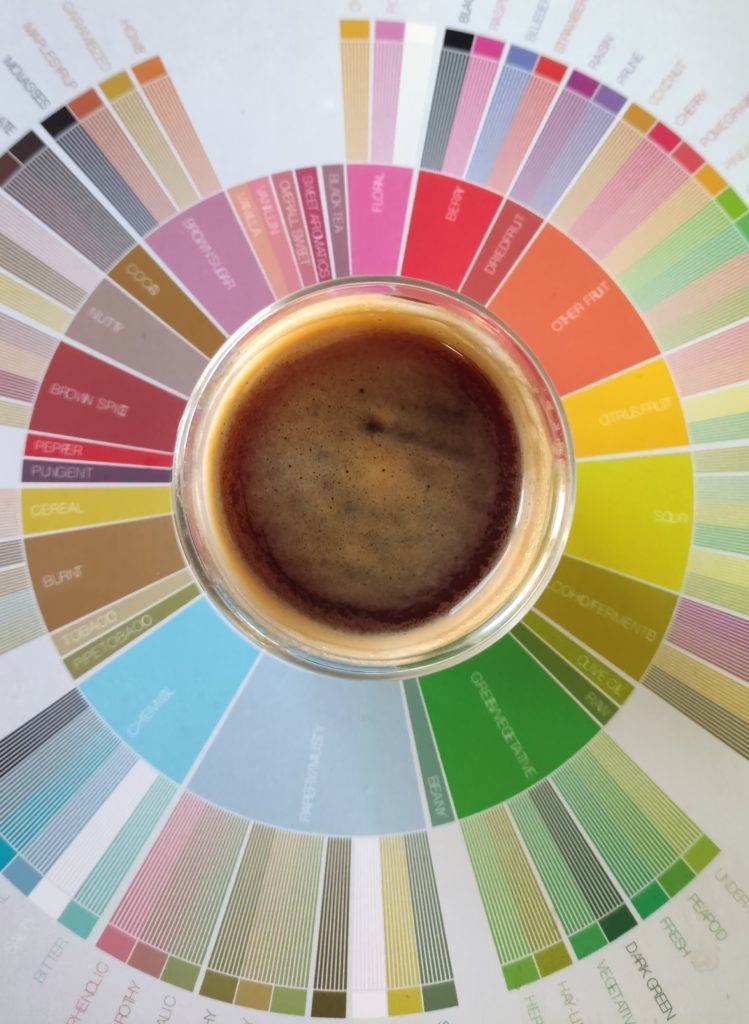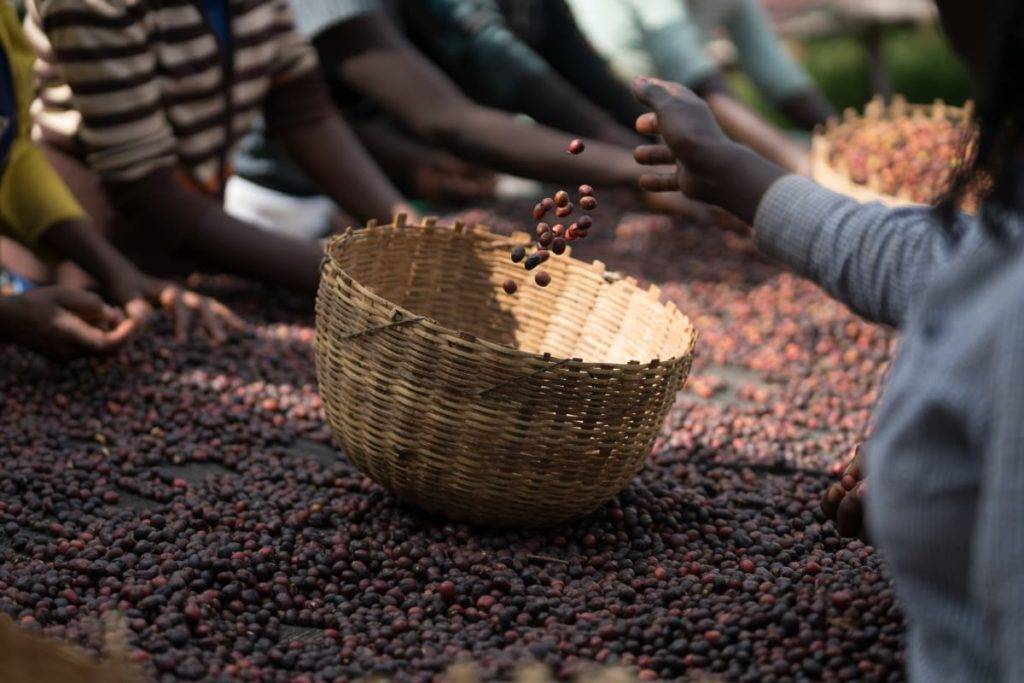What is Specialty Coffee?

According to SCAE France (Specialty Coffee Association of Europe), “Specialty coffees are high-end coffee-based drinks that are recognized (in a specific market and at a given time) as being of a unique quality. They offer distinct and superior taste and character compared to regular coffee-based drinks. The drink must be made from green coffee beans grown in select climates and must fulfill a series of demanding standards regarding its production, treatment, roasting, storage and preparation.”
Like the name says, specialty coffee brings together specific characters:
- Carefully chosen sourcing area of green beans
- Rigor in the selection of used botanical varieties
- Control of cultivation and harvesting methods
- Respect for the fermentation, drying and sorting process
A specialty coffee comes from a traceable region, a region with its own identity: each coffee has a message to bring based on its origins.
History corner
The term of Specialty coffee originates from the United States, where quality coffees have emerged for many years. It is just a few years since these exceptional coffees arrived in Europe with the “third wave”! This “Third wave” began approximately in 2002, with the rise of artisan roasters and barista who helped elevate coffee to an exceptional product (from producer to a cup).
The phenomenon known as the Third Wave of coffee is engaged in the search for the quality, which was lost in mass production, the promotion of excellence, product knowledge and traceability, and is gradually spreading to the Europe. This movement born in the 1990s promotes the idea of a more conscious and sustainable consumption of coffee, prepared with alternative methods.
It was Erna Knutsen (1921-2018) who used this term of “specialty coffee” for the first time during a speech in Montreuil in 1978. She then laid the groundwork: namely “special geographic microclimates produce beans with unique flavor profiles”.
Erna Knutsen, first secretary to Bert Fulmer, a partner at B.C. Ireland, which imported coffees and spices to the San Francisco area, once fell in love with Mandheling Sumatra coffee. She then began to take an interest in coffees grown in microclimates and small American roasters, dominated at that time by industrial roasters.

Later, Erna Knutsen created the SCAA (Specialty Coffee Association of America), an association which then allowed the emergence and structuring of a new sector with the aim of restoring coffee to its nobility.
Firstly two separate associations: SCAA (American) and SCAE (European), now are represented under the same acronym: SCA (https://www.scafrance.coffee/). Today, SCA is the voice of specialty coffee around the world and its mission is to unify the entire chain (from the producer, to the importer, to the roaster, to the barista). The SCA has made it possible to raise awareness and disseminate good practices around the production and consumption of coffee around the world. If the specialty coffee sector has developed for many years in the United States thanks in particular to the presence of numerous Coffee Shops, it would be necessary to wait until the 2000s in Europe and 2002 in France for the sector to begin to develop. To develop thanks to the emergence of the profession of Barista and the artisan-roaster.
The characteristics of specialty coffee
Specialty coffee beans are produced in special geographic microclimates with unique flavor profiles. Specialty coffee beans would always be well prepared, freshly roasted, and properly brewed.
One of the distinguishing features of specialty coffee is that we can learn where exactly the coffee grows (country and region), who the farmers or farmers association are, what processing method they used after the harvest (washing, dry process or honey process). It tells you the whole story behind it.
Specialty coffee also must conform to strict standards, accepted by international associations. The widely accepted definition of specialty coffee is coffee scoring 80 points or above on the 100-point Coffee Review scale. Coffee scoring from 90-100 is graded Outstanding, coffee that scores 85-89.99 is graded Excellent, while coffee scoring 80-84.99 is graded Very Good.
The Specialty Coffee Association (SCA) sets standards for specialty coffees at all stages of its production. The minimum requirements for specialty coffee are:
- must be rated at least 80 of 100 points,
- must be traceable to the farm,
- must contain no defect of category 1 (large pieces of wood, black beans, etc.) per sample of 350 grams,
- must not contain more than 5 defects of category 2 (small stones, broken beans, etc.) per sample of 350 grams,
- coffee plants must be carefully cultivated and harvested at the right time, producers must adhere to the best processing methods and certain storage conditions must be preserved.


The mission of Specialty Coffee
Coffee, on the other hand, most often arrives in the final consumer’s hand after a long series of baton hand offs from farmer to miller to intermediaries to roaster to brewer, and the final experience is dependent on no single actor in the chain dropping the baton.
The Coffee Farmer -> The Green Coffee Buyer -> The Roaster -> The Barista -> The Consumer
Great coffee starts with the producer. Grown in select altitudes and climates and nursed for years before the first harvest, the producer who creates specialty coffee devotes his or her life to refining and perfecting the highest quality coffee on the planet. For them, it is quality not quantity that is the most important consideration. Only coffees free of defects and picked at their peak of ripeness will continue on to the next hands that will shape them.
For specialty coffee processing begins with the delivery of the ripe cherry to a wet mill. The time that elapses between harvest and the beginning of processing can have a dramatic impact on the final results for the coffee. Specialty coffee is dependent on a quick delivery from the tree to the mill for potential to be preserved.
Whether the coffee is mechanically pulped and then fully washed or if it is processed in a demucilaging machine, the initial processing stage must be carefully managed so that the coffee is not harmed. After removal of the skin and pulp, the coffee must be dried, another critical activity. Dried too quickly or too slowly, dried unevenly, dried and then rewetted, not dried sufficiently – all of these can be disastrous to the final quality of the coffee. From here the coffee must be rested before undergoing the last stages of raw processing and preparation for shipping. At this time relative humidity, temperature and storage containers and conditions all become critical. Finally, the coffee must be hulled, separated by size and packaged for shipping. More critical points arise here, and small mistakes in screening or larger mistakes in the selection of packaging or the storage conditions prior to shipping can bleed the coffee of its potential.
Green coffee is next transferred to the green coffee buyer who may be certified by the SCA. They can keenly identify coffee quality via cupping, or systematic tasting of brewed coffees. Through cupping, the coffee taster can assess a coffee’s score and determine whether it is specialty grade quality, make decisions on which coffees they will include in their offerings, and often develop tasting notes and descriptions for the coffee on its final packaging.
High quality coffees are next transferred to the coffee roaster. Coffee roasting is an art that requires a high degree of knowledge and experience to produce specialty level roast profiles. Coffee must be closely monitored during the roasting process and scientific principles of heat transfer, thermodynamics and coffee chemistry must be applied to ensure the highest standard of quality and flavor come through in the final roasted bean.
Once the specialty coffee beans reach the retail environment, they have already passed 3 levels of inspection to ensure an extremely high level of quality control, however the process in not yet complete. The barista is the final coffee professional to guarantee the lifecycle of the specialty bean is completed. Specialty level Baristas are not only highly skilled in brewing equipment operations; they routinely are deeply informed as to the origin of the coffee bean and how it’s flavor profiles will be revealed in brewing. If the specialty bean is not brewed properly it is possible that its true flavor potential could be lost; the Barista ensures each bean reaches its full brewed promise.
In fact, it is the consumer who completes the lifecycle of the specialty coffee bean by actively seeking out and choosing specialty coffee options. When you take the time to find a local coffee bar or roastery that is dedicated to quality, or take an extra moment to learn from your barista about the people whose hands and passion produced the cup you’re enjoying so that you can make more informed choices, you demonstrate not only a commitment to a higher standard of quality of taste and flavor but also a commitment to a higher standard of living for every person who contributed along the way.
Well, in the broadest sense, we define it is as coffee that has met all the tests of survival encountered in the long journey from the coffee tree to the coffee cup.
Materials: https://en.wikipedia.org/, https://sca.coffee/,https://perfectdailygrind.com/
